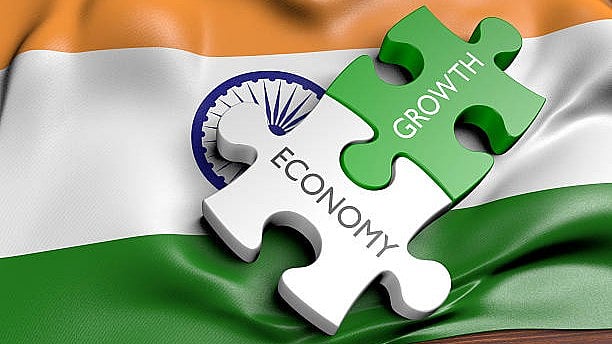
Image for representational purposes.
Credit: iStock Photo
Suvarna Karnataka. Brand Bengaluru. Viksit Bharat. Governments have a slew of initiatives that promise to get us to some kind of developed status in the future. This isn’t new; it has been going on for a while, as the Centre, the states and even cities turn to branding campaigns to draw attention to themselves and make grand promises. By now, we should be living in paradise.
Such campaigns can have some positive and lasting impact, under the right circumstances. Memorability and strategic communication that are place-based can create distinct recall and associations in the mind of the audience, and this can be leveraged for a specific goal. God’s Own Country established Kerala as a constant option for tourists, for example. Repeated references to the Silicon Valley of India have been instrumental in reinforcing Bengaluru’s association with IT.
Sometimes, there have been attempts to rope in the public as well. The Bihar government runs something called Mera Prakhand, Mera Gaurav to involve local communities in promoting tourism. In Bengaluru, we are quite familiar with Namma Metro, although currently BMRCL is mired in controversy for refusing to tell us how ‘our’ Metro fixed the new fares. The namma is, perhaps, only for effect.
That is a good segue into something noteworthy about the branding. These campaigns are strikingly similar in one respect – while they are always made by the government, they don’t promise to make governance itself world-class. That’s ironic, for two reasons. One, governance is the thing they have the most control over, and two, the quality of governance across India lags behind achievements in industry as well as behind people’s aspirations.
Why not Viksit government, then? That is what the people really want – a government that does its job well. The rest of the stuff is not unimportant, I admit, but it is surely not the main feature of any promise by a government. That focus has to be on putting its own house in order.
Efficiency gaps
A cursory look at namma city is enough to see that a Better BBMP would be widely welcomed by the people. Twenty years after the last set of BDA layouts were developed, so many sites remain vacant. The bus fleet, which once used to be India’s largest, has remained constant while the population has boomed. The city’s planning body hasn’t met in years – must be because it has no members! So many public schools in the state look like condemned buildings; it is no wonder that half the children don’t graduate from high school.
One can go on and on with this list, without too much difficulty. Worse still, none of these deficits are small. It is not as if people are complaining that a few roads are not in good condition, or that there is a small shortage of affordable housing and adequate bus services. In each instance, the gap between what the public wants and what the government has done is a canyon.
And all of this is happening at a time when individuals are striving to better themselves in so many different fields. In the marketplace too, there is intense competition and innovation that drives companies to be better. The government, on the other hand, shows none of the required urgency. In a three-horse race for development between state, market, and society, only two horses are running.
The irony-tragedy of this is that a hugely under-performing public sector liberally uses its power to decide how the society and market should function, and even penalise those who don’t fall in line. The bike taxi and auto-rickshaw fiascos are good recent examples, and a much longer-running movie on this is Akrama Sakrama. The GST bun-cream episode is legend.
There is a great scarcity of legal options in so many sectors because the government has neither enabled nor provided goods and services sufficiently to meet demand. Naturally, the alternatives that have sprung up to fill the gap are deemed illegal. But the people choose them anyway, because they’re all that’s available.
An article in The Economist this week that cites research by the Vidhi Centre for Legal Policy points out that governments have made it impossible for people to follow many laws by over-criminalising a lot of things. Even as they proclaim their commitment to better services and ease of doing business, the Centre as well as the states have kept adding to the lists of must-dos and don’ts, making an already onerous situation even worse.
An asymmetrically powerful and unreformed state has been a drag on development, despite the efforts of the market and society. Fix-it India requires a Viksit Sarkar.
(The writer is an urbanist and social entrepreneur)